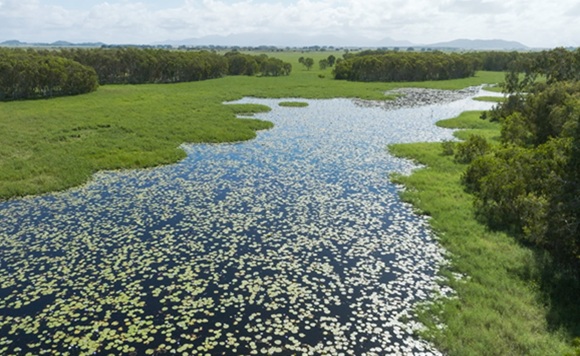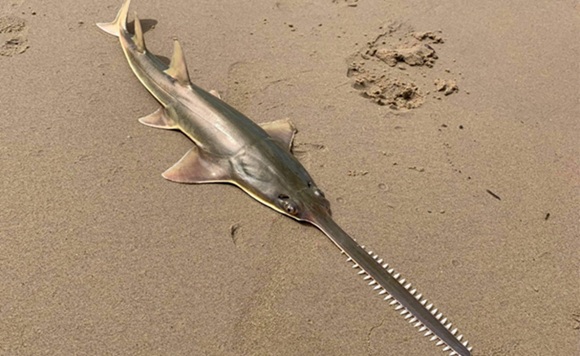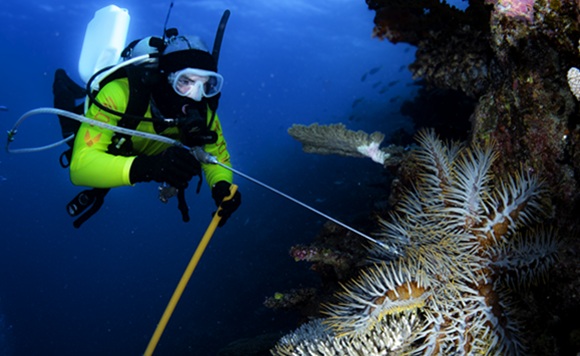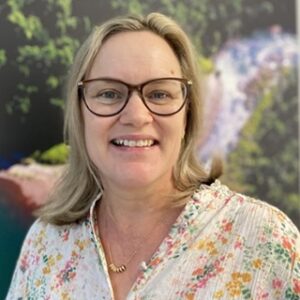
Mungalla: Healing the Herbert
Owners of Mungalla in the Herbert catchment are helping bring wetlands back to life
Healthy waterways underpin our lifestyles and livelihoods. When waterways thrive, so do we.
Tree planting along riverbanks and restoring wetlands are among some of the new Reef Assist 2.0 projects funded by the Queensland Government, which are creating jobs in environmental restoration and helping to improve waterway health.
The Wet Tropics region is receiving an economic boost of up to $4.77 million through five new projects funded under the $33.5 million Reef Assist program. The projects are being delivered in 2023 and 2024 and are spread from the Upper Daintree to the Johnstone catchment and out to the Atherton Tablelands.
The program delivers priority environmental projects that create practical, on-ground regional jobs for Queenslanders, tackling a range of environmental issues to improve water quality flowing to the Great Barrier Reef.
The second iteration of the program, Reef Assist 2.0 is focused primarily on reducing sediment and nutrient loads running off the land to the Reef with 11 projects across the six natural resource management regions in the Great Barrier Reef catchment.
The Wet Tropics projects are being led by Greening Australia, the Wet Tropics Management Authority, Jaragun EcoServices, Johnstone Region Landcare Group and the Jabalbina Yalanji Aboriginal Corporation, in partnership with delivery agents and Traditional Owner partners. On-ground works include the revegetation of degraded landscapes including streambanks, gullies and wetlands, erosion control, weed management and the restoration of habitat for threatened species including the southern cassowary, Bennett’s tree-kangaroo and the spotted-tailed quoll.
The Reef Assist program is focused on creating jobs for First Nations people, young people, and unemployed or under-employed people, and providing on-ground and job readiness training to help with career development. To date, more than 55 regional jobs have been created in the Wet Tropics through the new projects, with over 60 per cent of positions filled by First Nations people. Training undertaken by participants includes certificates in conservation and land management, remote first aid, chemicals handling, chainsaw usage, drone operation and water quality testing.
Reef Assist Program Managers Rachel D’Arcy and Mel Shepherd, from the Office of the Great Barrier Reef and World Heritage in the Department of Environment and Science toured the Wet Tropics region to visit the project sites and meet with the people employed through the program. This included young First Nations people in their first paid job who were excited to be doing environmental work in beautiful environments, outdoors and on Country – from rainforest and riparian areas to farmland.
**The $33.5 million Reef Assist program is funded through the Queensland Government’s Queensland Reef Water Quality program. For more information, visit: www.qld.gov.au/environment/coasts-waterways/reef/reef-program/reef-assist

Owners of Mungalla in the Herbert catchment are helping bring wetlands back to life


Marine biologist Rickard Abom shares his experiences of the Great Barrier Reef

Martine joined the Wet Tropics Waterways team as a Science Technical Officer in early 2024. She is an environmental scientist and ecologist and has worked on water quality and aquatic ecology projects as a consultant and in private industry for over 20 years. She is using her experience in statistical programming and database development to develop new systems for the Report Card.

Louise joined Wet Tropics Waterways as Executive Officer in 2025.
Louise Hateley is an environmental scientist with over 20 years of experience in natural resource management, water quality, and catchment modelling across government, research, and community sectors. She has held senior scientific and project coordination roles with the Department of Natural Resources, Mines and Energy and Terrain NRM, leading projects focused on GBR catchment health, waterway management, and sustainable land use. With a record of published research, stakeholder engagement, and project delivery, Louise combines scientific expertise with practical leadership to drive initiatives that protect the Wet Tropics and support community collaboration.

Simon has over 30 years’ experience advocating for waterways across academia, government and the private sector. He started out in marine botany with a fascination for seagrass, mangroves and macroalgae, and has gone on to lead major environmental initiatives both in Australia and overseas. He has established report cards in eight countries.

Richard has been the Science Technical Officer for Wet Tropics Waterways since 2016. His role involves producing the annual results for the waterway health assessment of the wet tropics region using data from a wide range of sources, to present as scores and grades, as well as developing new indicators to address knowledge and monitoring gaps. He works in collaboration with technical staff at other regional report cards.
Richard has a background in freshwater ecology research projects and environmental assessments with CSIRO, University of Queensland, Queensland Government and as a consultant. For a long time he’s been interested in freshwater aquaculture and continues this interest through farming freshwater crayfish, alongside other farming activities.